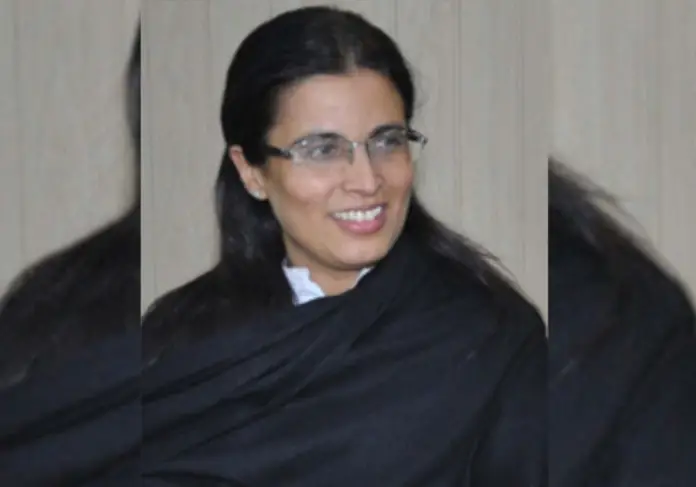The Judicial Commission of Pakistan (JCP) on Thursday approved the elevation of Lahore High Court (LHC) Justice Ayesha A Malik to the Supreme Court.
Justice Ayesha Malik would be the country’s first-ever woman judge to sit on the apex court. Supreme Court Chief Justice Gulzar Ahmed chaired the JCP meeting, which was also attended by Federal Law and Justice Minister Farogh Naseem and the attorney general of Pakistan.
Justice Ayesha’s elevation was approved by a majority of five votes against four.
Speaking to journalists after the meeting, Minister Farogh Naseem said that the JCP had made a historic decision. For the first time in the history of Pakistan, a woman was appointed as a judge of the Supreme Court, he added.
He said four members opposed the elevation of Justice Ayesha, Supreme Court Chief Justice Gulzar Ahmed, Justice Umar Ata Bandial, Justice (r) Sarmad Jalal Usmani, law minister and the attorney general supported the decision.
To a question about the opinion of the Pakistan Bar Council (PBC) regarding the principle of seniority, the minister said the Supreme Court’s decisions were available in that regard where it had made it clear that the seniority principle was not absolute on the appointment of a high court judge to the Supreme Court.
This is the second time that the JCP held a meeting to decide on Justice Ayesha’s elevation. A lack of consensus during an extended meeting of the JCP on September 9 last year had forced the commission to reject her elevation.
During that meeting, four members of the eight-member JCP had opposed the proposal to elevate Justice Ayesha – the fourth most senior judge of the LHC – while an equal number had supported it.
At the time, the Supreme Court Bar Association President Abdul Latif Afridi had called a countrywide protest to express anger over, what the legal fraternity perceived, disregard to the seniority principle in the appointment of judges to the apex court.
The same criticism was levelled this time as well, with the legal fraternity calling on the chief justice to postpone the Thursday’s meeting.
Meanwhile, reactions poured in from all quarters as netizens, politicians and lawyers congratulated Justice Ayesha on her nomination.
Legal adviser for the International Commission of Jurists, Reema Omer, said that Justice Malik’s presence would enrich the apex court in “many ways” in addition to “finally bringing a woman’s perspective to the highest court of Pakistan that has shockingly been missing for 74 years”.
She added that much work needed to be done to ensure that such nominations were not at the “whim of the current chief justice of the day”.
“Impediments such as opacity and lack of criteria in appointments process, an all-men judicial commission, and sexism in the legal community continue to exclude women from the judiciary,” she said.
Director of Bolo Bhi, an advocacy forum for digital rights, Usama Khilji, expressed the hope that many more women would make it to the “top corridors of decision-making” in Pakistan.
Parliamentary Secretary for Law and Justice Maleeka Bokhari called it an important and defining moment in the country’s history.







